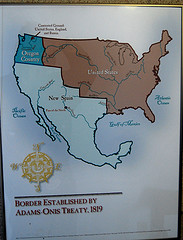A Guide to Buying From Antique Dealers

A Guide to Buying From Antique Dealers
Article by Samuel Zee
A professional who sells antiques, often in a permanent establishment but also at fairs, is known as an antiques dealer.
There are many advantages to buying from a dealer rather than at auction. There is no pressure to make up your mind in an instant as to how much you are willing to pay, which you may have to do in the heated atmosphere of an auction. You will also know exactly how much you will pay for the piece - there is no need to worry about adding the auction house premium onto the price quoted.
Unlike auction houses, where furniture may be quite dilapidated, most quality dealers offer furniture in a good state of repair and will have the piece restored, if necessary, before offering it for sale. This means that there are no extra restoration costs to take into account. If you get on well with your dealer, you might build up a long-lasting relationship that will be beneficial to both of you.
Most dealers are great enthusiasts about their stock, and will probably be happy to share their knowledge of the subject as you build your collection. They might look out for special pieces that they do not have in stock for you, or offer to buy back pieces they have sold to you, so that you can upgrade your collection.
If you see something that you want to buy, ask for as much information about the piece as possible. A good dealer will spend time talking to you, explaining the pros and cons of the pieces in which you are interested. The dealer should be able to tell you how old an item is, what it is made of, and from where it came (auction, private property, or deceased estate).
There may also be some sales tend to be smaller - a local boot sale might be a good place to hunt for a Lloyd Loom wicker chair or laundry basket, but do not expect to find a Chippendale side chair or an oak dresser very often.
As always, the old adage “the early bird catches the worm” is true. The first to arrive are often the dealers, who may arrive well before dawn. Try to arrive at the sale as early as possible and always carry a torch (or flashlight). The light can be poor if it is early in the morning or late in the afternoon, and you need to be able to inspect items closely before you part with any cash.
If you find something that catches your eye, the prices at a boot sale are usually flexible, so it really is worth bargaining (gently, but firmly) with the person selling. Bring coins and low value notes. If you are in any doubt, ask a few questions about the provenance of the piece. You should try to obtain a written receipt with the name and address of the person from whom you are buying. It is also a good idea to note the license-plate number of the seller’s car.
Find More Coin Dealer Articles
Related posts:
- Buying Rare Old Coin: Reliable Numismatics Collecting Dealers Buying Rare Old Coin: Reliable Numismatics Collecting Dealers Article by Elberto Old rare coins invariably command the zeal of the numismatists and are literally as valuable as gold. It...
- Antique Coin Collections - 6 Tips To Make Your Antique Collections Trendy Antique Coin Collections - 6 Tips To Make Your Antique Collections Trendy The fun involved in coin collecting is becoming more famous with every passing day. It is one way...
- Guide to Buying Krugerrand and Gold Eagle Coins Guide to Buying Krugerrand and Gold Eagle Coins Guide to Buying Krugerrand and Gold Eagle Coins Free Online Articles Directory Why Submit Articles? Top Authors Top Articles FAQ AB Answers...
- Krugerrands For Sale - A Guide For The Neophyte Coin Investors Krugerrands For Sale - A Guide For The Neophyte Coin Investors Are you currently looking for Krugerrands for sale so that you can begin a brand new coin collection? Do...
- Coin Dealers Coin Dealers Dealing with a coin dealer is a tough business. You must first do background checks on the dealer before you proceed into any form of transactions. You should...
